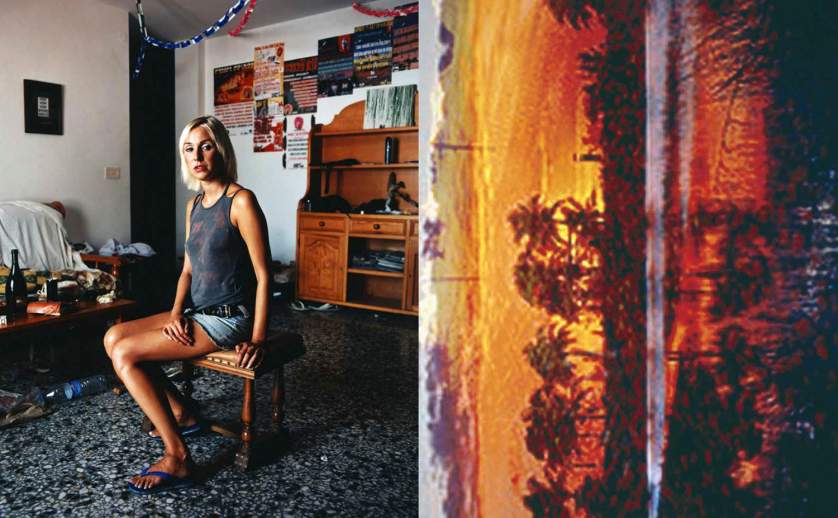“All these fucking photographs,” says Gareth McConnell at the very beginning of our conversation. “What do you do with them? How do you make sense of them?”
It’s taken weeks to connect. The Irish-born, London-based photographer has given me the runaround, but he’s so engaging and funny when he finally replies that I find it hard to maintain any strop.
“I am gonna look for PDFs now,” he writes. Then: “I have neither copies of the books or money for a courier if I did… why didn’t I pay more attention at school?”
He’s much like this in conversation: frequently self-deprecating, easy-going, often cheeky. He also talks nineteen to the dozen, weaving punk bands, AK-47s, Tommy Hilfiger, Susan Sontag and Carl Cox into his conversation as easily as his publishing venture (Sorika), his daughter, and his long-time battle with drug addiction. At the end of it all, I find myself wondering what on earth just happened.
McConnell came to international attention with the publication of his first book, a short-lived collaboration between Steidl and Photoworks, dedicated to emerging photographers in the UK (the four others published were Clare Strand, Sophy Rickett, Nigel Shafran and Bettina von Zwehl).
McConnell’s book focused on portraits of people who could loosely be described as outsiders, including pictures of loyalists drinking in a bar in his home town in Northern Ireland, and a series of portraits of Ibiza ravers taken between 2002 and 2011. Entitled Nothing Is Ever The Same As They Said It Was (the words belong to Diane Arbus), the latter pictured young British hedonists in their hotel rooms the morning after the night before.
These quiet and considered portraits were eons away from their theatre of dance and drugs; the encounter between photographer and subject the pivot on which each image hovered. “I knew that only by decontextualising [the images] from the clubs, the drugs, the sea, the sand – the sex, you know, the cliché – could they actually be seen,” he says.


